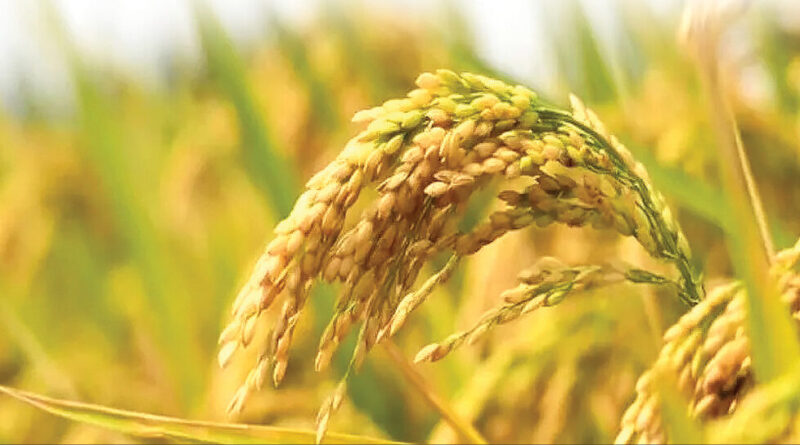Submergence-tolerant rice varieties rayof hope for farmers in flood-prone Assam
With the Met department having forecast normal to above normal rainfall in parts of Assam, the introduction of flood and stress-tolerant rice varieties has brought a glimmer of hope to farmers in the state. In Jorgaon village located in the flood-prone Morigaon district of central Assam, nearly all 125 households have embraced climate-resilient technology to protect their crops from the fury of monsoon.
The initiative taken by villagers, many of whom had given up paddy cultivation altogether during the rainy season, has not only boosted their income but also rekindled their interest in farming.
The International Rice Research Institute (IRRI), Assam Agricultural University and the state agriculture department have collaborated to introduce stress-tolerant rice varieties, covering approximately 4.5 lakh hectares of land in the state to enable paddy farming in flood-prone regions, under the Assam Agribusiness and Rural Transformation Project (APART) and other schemes
Rabin Bordoloi, a farmer from Jorgaon village, began searching for a flood-resistant paddy variety in 2018. He sought assistance from the Krishi Vigyan Kendra (KVK) in Morigaon, which was at the time promoting flood-tolerant rice varieties such as Ranjit-Sub1, Bahadur-Sub1 and Swarna-Sub1 in partnership with IRRI under APART. Following a successful demonstration of the Ranjit-Sub1 variety by KVK, Bordoloi witnessed his paddy fields surviving the inundation caused by the monsoon floods. Encouraged by this outcome, the entire village of farmers began cultivating the flood-tolerant Sub1 varieties, particularly the Ranjit-Sub1.
Bordoloi said, “In our village, every farmer now grows the Ranjit-Sub1 variety on at least one bigha of land. Since all villagers don’t have access to seeds provided by the govt or the Assam Agricultural University, we exchange our Sub1 seedlings with traditional variety seedlings. Our aim is to gradually replace all traditional strains with the submergence-tolerant Ranjit-Sub1 variety.”
By 2022, the adoption of stress-tolerant rice varieties had expanded to cover an impressive 240 bighas of land, up from 120 bighas covered in 2018. Officials highlighted that rice production has increased up to six tonnes per hectare, demonstrating the efficacy of stress-tolerant rice varieties in combating the challenges posed by frequent floods.
Sudhanshu Singh, director of IRRI South Asia Regional Centre in Varanasi and project leader of IRRI-APART, emphasised the significance of farmers in Assam adopting stress-tolerant rice varieties, given that a substantial portion of the state’s rice area is affected by floods.
“Out of Assam’s total 2.5 million hectares of rice area, 0.36 million hectares are chronically impacted by floods, and 1.05 million hectares are potentially flood-prone.
Therefore, the widespread adoption of stress-tolerant rice varieties by Assam’s farmers represents a significant milestone with profound implications for the state’s economy,” he added.
He further said, “We have been actively working on this initiative, and from 2018 to 2023, we have successfully distributed stress-tolerant rice variety seeds to farmers, covering approximately 4.5 lakh hectares in Assam.”
This article has been republished from The Times of India.

